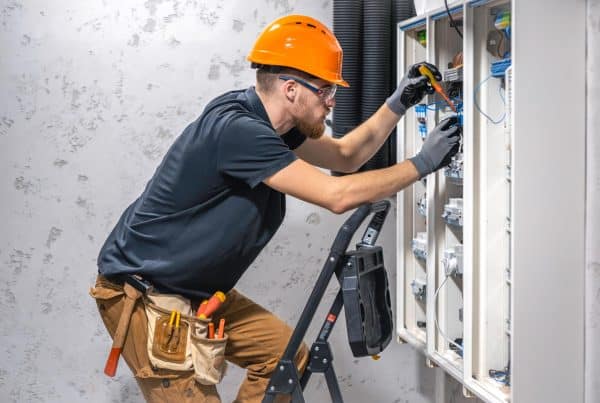If you love spending time on your patio, you know how important it is to have a reliable outdoor heater. A patio heater can extend your patio season and make your outdoor space more comfortable and inviting. But with so many options available, how do you choose the right one for your needs?
In this article, we will compare two popular types of outdoor heating units: gas and electric. We will look at their pros and cons, their costs and efficiency, and their safety and environmental impact. By the end of this article, you will have a better idea of which patio heater is best for your outdoor space.
What are Patio Heaters…and Why Do You Need One?
Patio heaters are devices that provide warmth and comfort to your outdoor spaces. They allow you to enjoy your patio, deck, or garden even when the weather is cold or windy. Whether you want to host a party, have a romantic dinner, or just relax outside, patio heaters can create a cozy and inviting atmosphere.
There are two main types of patio heaters: gas and electric. Gas patio heaters use either natural gas or propane as fuel, while electric patio heaters use electricity as the power source. Both types have their advantages and disadvantages, depending on your needs and preferences. In this article, we will compare gas and electric patio heaters and help you make the right choice for your outdoor heating solution.
Gas Patio Heaters: Pros and Cons
Gas patio heaters harness the power of natural gas or propane to generate warmth, boasting a robust heat output ranging from 40,000 to 60,000 BTUs (British thermal units). This allows them to cover larger areas and deliver superior warmth for your guests. Their visible flame contributes to a more natural and cozy ambiance.
However, gas outdoor heaters present challenges. They demand a gas supply, either from a gas line or a propane tank, which can be inconvenient and costly. Proper ventilation is crucial, as the combustion process produces carbon monoxide and other byproducts. Consequently, gas patio heaters are suitable for well-ventilated outdoor spaces, such as open patios or decks. If not used or maintained correctly, they may pose a fire hazard. Professional installation is often necessary, especially when connecting to a natural gas line.
Electric Patio Heaters: Pros and Cons
Electric patio heaters offer convenience, energy efficiency, and hassle-free installation. Operating without the need for natural gas or propane, they produce no emissions or fumes. Moreover, they don’t require ventilation, making them suitable for outdoor spaces lacking proper airflow.
Nonetheless, electric outdoor heaters have their downsides. Generally, they have a lower heat output compared to gas patio heaters and may take longer to warm up your space. Their dependency on electricity means they won’t function during power outages or if connected to a faulty outlet. The cost disparity between gas and electric patio heaters depends on utility rates and the size of the area you intend to heat.
Factors to Consider When Choosing Between Gas and Electric Patio Heaters
Choosing between gas and electric patio heaters can be a bit of a puzzle, but let’s break it down in a simpler way. Patio heaters are fantastic for keeping your outdoor space cozy, whether it’s your home patio or a restaurant. But how do you figure out which one suits you best? Well, there are a few things to think about, like the size and layout of your outdoor area, your budget, energy costs, and how each type impacts the environment. Here’s a quick rundown to help you decide.
Analyzing Your Outdoor Space and Heating Needs
Start by measuring your outdoor area and figuring out how much warmth you need. Electric heaters might not crank out as much heat as gas ones, but they’re efficient and warm up quickly. On the flip side, gas heaters pack a punch but take a bit longer to get going and might not be the best for windy spots. Also, think about where you can set them up. Electric heaters need an outlet nearby, while gas heaters need a gas line or tank. You’ll find electric heaters in various styles, like wall-mounted, freestanding, or tabletop models, while gas heaters are typically freestanding or tabletop, with some wall-mounted options.
Budget and Long-Term Costs
The price tag for a patio heater depends on its type, size, and quality. Generally, electric heaters are cheaper upfront, but keep an eye on your electricity rates for long-term costs. Gas heaters might cost more initially, but they could be cheaper to run, depending on local gas prices. Don’t forget maintenance costs – electric heaters are low-maintenance since they don’t need gas tank refills. Gas heaters, on the other hand, need regular cleaning and check-ups on gas lines and valves, plus you’ll need to buy or rent gas tanks.
Environmental Impact
Consider the planet while making your choice. Electric heaters use electricity, which can be from renewable or non-renewable sources. Gas heaters use natural gas or propane, which emit greenhouse gases when burned. Electric heaters are more environmentally friendly if they use renewable energy like solar or wind power. Gas heaters are greener if they use natural gas from biogas or biomethane sources derived from organic waste.
Choosing Your Ideal Patio Heater
To assist in your decision-making, the table below provides a quick overview of key features and considerations for gas and electric patio heaters:
| Feature | Gas Patio Heaters | Electric Patio Heaters |
|---|---|---|
| Energy Source | Natural Gas or Propane | Electricity |
| Installation | Typically requires professional installation and a gas line connection | Generally easy to install; it just needs access to an electrical outlet |
| Mobility | Maybe less mobile due to the gas line connection | Portable options available for flexibility in placement |
| Cost | Initial installation costs can be higher; ongoing fuel costs depend on gas prices. | Generally lower upfront cost; operational cost depends on electricity rates |
| Heat Output | Generates high heat levels quickly | Takes some time to warm up, but some models provide comparable heat |
| Environmental Impact | The combustion process emits carbon dioxide; propane is a fossil fuel | They are considered more eco-friendly as they don’t produce emissions locally |
| Safety | Requires proper ventilation to prevent gas buildup; open flames pose a risk. | No open flames, no combustion, and often equipped with safety features |
| Maintenance | Regular maintenance is required for gas components and periodic checks for leaks. | Minimal maintenance; occasional cleaning and inspection of electrical components |
| Aesthetics | Flame adds a visual element; various design options are available | No visible flame; sleek and modern designs often available |
| Space Heating | Effective for larger outdoor areas | Suitable for smaller to medium-sized spaces |
| Weather Resistance | Generally more resilient to outdoor conditions | Vulnerable to water exposure; outdoor-rated models are available |
| Control Options | Variable heat settings; manual controls | Variable heat settings; some models offer remote control and smart features |
In the quest for the ideal outdoor heater, understanding the nuances of gas and electric options is key. Gas patio heaters, fueled by either natural gas or propane, offer robust heat output, making them suitable for larger spaces.
On the flip side, electric patio heaters provide convenience with easy installation and a more targeted approach to heating. To make the right choice, consider factors such as your outdoor space size, heating needs, and budget. Gas heaters may require professional installation, while electric options offer a plug-and-play solution. Get into the specifics of each type to ensure the selected heater aligns seamlessly with your unique outdoor comfort requirements.
About the Author
Anna Fox is the Content Marketing Strategist of Señor Mist, a Phoenix, Arizona-based company that provides high pressure misting systems/fog effects, comfort heaters, patio drop shades, hvls fans and more. When not writing, she makes use of her spare time reading books and hiking with her dog, Blaze.








